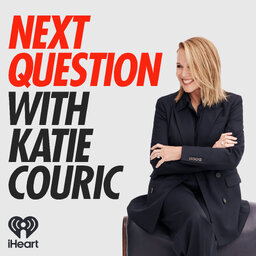Melissa Etheridge Has Been on a Hero’s Journey All Her Own
Melissa Etheridge has written two memoirs now–her new one is Talking to My Angels. For many people, writing more than one memoir might seem excessive, but Etheridge has lived a lot. She’s reflective on just how much she’s learned between 40, when she wrote her first memoir, and about 60 where she’s writing from now, especially how a definitive spiritual experience (thanks to what she calls a hero dose of cannabis) really separated her life into “before” and “after.”
On the other side, Melissa finds herself happier and more centered than ever. She’s articulate and sure about how she found that peace, and seems to have an amazing capacity to learn from and process the not-so-peaceful events in her life.
And of course music is the thrumming throughline underpinning everything from her career to her memories of childhood, to what drives her now after so many challenges that could have broken many. But Melissa seems to ground herself even deeper in times of trial, and has a lot to teach anyone about resilience, grit, and grace.
 Next Question with Katie Couric
Next Question with Katie Couric


